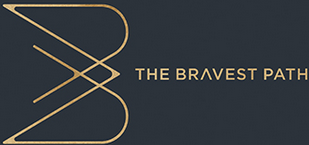The Art of Saying No: Hearing a No Well
If you find it hard to say no, you might also find it hard to accept hearing no. When we personally struggle to articulate or uphold boundaries, sometimes we can become resentful of those who can do so with ease.
Why can they disappoint someone, but I can’t?
Why can they be firm, but I can’t?
Why can they say no without explanation, but I can’t?
The answer may be simple—other people can say no because they have learned to do so without apology. They might still experience feelings of anxiety, guilt, or shame when saying no, but their commitment to themselves is stronger.
For some, it might come naturally to honour their wants. But my inkling is that’s not the default for many. Society is filled with messages of how we should be and act, so it’s no wonder many of us learn how to adapt and blend in.
What I’ve learned from those who can (seemingly) say no with ease is that it’s something they have intentionally thought about and practised. They, too, have begun by getting curious about themselves and noticed patterns of behaviour like being a chameleon or people pleaser.
They have enacted the pause to give themselves time and space to reflect.
And they have practised bringing warmth and strength to moments of pressure.
Recognising that it is a work in progress for others can help us to hear no more gracefully. Rather than begrudge hearing a no, it’s now something I find inspiring and can get curious about.
If someone else can say no without fanfare, then I can give myself permission to do it, too. It’s taught me that we all have different worries and fears - losing opportunities, damaging relationships, or uncertain consequences. But even with such concerns, it’s okay to say no. It’s okay to know what you want and protect it. It’s okay to disappoint others. It’s okay because it is human - and we can’t please everyone.
We can try our best to be accommodating or flexible, but we have to do so with integrity and authenticity, otherwise, we are not being respectful to our true wants and needs.
That’s what I’ve found to be the most profound lesson of all. Reflecting on the art of saying no, so much of it comes down to respect - for yourself and others. We cannot control what other people do or think, but when we demonstrate self-respect, we are also modelling to others how we wish to be treated.
Self-respect springs from worrying less about what other people think and more about feeling good in our own choices. This too is an art. It might be easier to enact in one area of our lives than another. We might take two steps forward, and one step back. But it’s all learning. When we bring curiosity to another person’s no, we create space for mutual respect.
What’s more is that when we learn to hear a no well, we can feel empowered to practise saying no with respect, too.
In this way, a rising tide lifts all boats. When we learn to hear a no and deliver a no well, we are also modelling boundaries and self-respect for others, helping to inspire a world that is hopefully fairer, healthier, and kinder.
Bethan Davies, Managing Director of The Bravest Path, shares her personal insights on the power of saying no and offers strategies to help you embrace your own strength. Find out more about The Bravest Path's leadership development programmes here:

